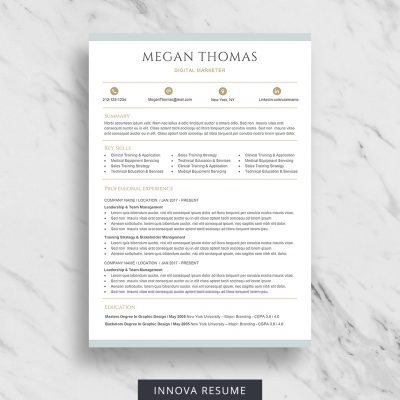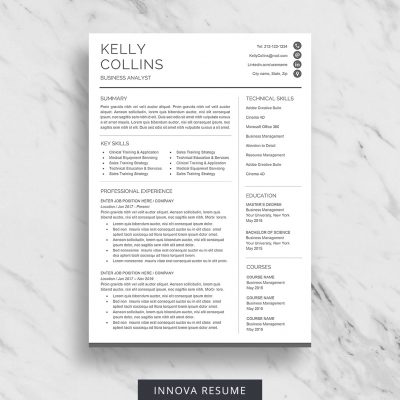Resume Tips
How to Write a Career Change Resume
As you develop new interests and skills over time, career change might be something you may decide to pursue to match them. In order to get your foot in the door of a new career, you should update your resume to achieve employment in your new field. With this guide, we will help review when and how you should go about updating your career change resume when you have only minimal experience in the field you are seeking to get into. Here are 5 career change resume revision tips to help you successfully pursue a career change.
1. Use A Hybrid Resume Format
When you enter into a new career field, you do not have a lot of, or perhaps any employment experience in the new career field. When you can’t lean on work experience, your only other recourse is to prioritize your skillset over it. For this, a hybrid resume is useful.
This type of resume format combines the formats of both the chronological resume and the functional one.
The hybrid resume should still include your traditional employment history. It will not be as related to your potential new employers, but it should still be included for the sake of completeness, clarity, and transparency. The focus of the hybrid resume draws more focus on your skills, by placing them higher up on the resume while still including the chronological account of your professional history.
2. Add An Objective
Some employers might be swarmed with resumes and are reviewing multiple resumes at once. Including an objective, a quick summary of your experience and skills will save the employer time in the evaluation process.
Included in this section should be those skills related to the career you are hoping to change into. The mention should be brief, as you will have an opportunity to elaborate on them later in the resume, but they should be specific and concise.
In reading the objective, employers will be seeking candidates with skills relevant to the job they are applying for. A review of the job description should give you an idea of what they are looking for. You will want to add at least some of those skills in your objective list.
3. Include A Skills Section
As you will be prioritizing skills over experience, a skills section should be included on your resume and it should be right after the objective. This will be your most prominent section in which you will have a chance to expand upon the skills mentioned in the objective. As with the objective, these skills should be specifically relevant to the job you are interested in.
The skills you included should consist of soft skills and hard skills. Hard skills are those that are acquired by a more formal setting, such as a school or a program where you are directly taught them. They are quantifiable and can show the employer that you have the set of skills you need to perform the job. Stating for example: “Developing marketing skills on social media through freelance work” or “Developing PHP skills through personal projects and study” are examples of how to relay your hard skills. This lets you to show the hard skills you possess and explain how you came to acquire such skills. You may not yet have the skills of someone experienced in your desired career, but it shows your employer your initiative.
Soft skills are transferable skills and they are important to show that you can be a valuable and cooperative member of a team, and therefore these are vital to include in your skills section.
4. Update Your Education Information
Your college major and/or minor could have been very relevant to your original career but might be less so to your desired one. You may have, however, taken several classes that would have helped you develop some transferable skills which could be invaluable to your new line of employment. If any such cases are present, you should indicate them more prominently in your education section, highlighting the skills that these helped you develop.
5. Revamp Your Employment Section
Your transferable (soft) skills are ones that would be helpful or relevant regardless of your job setting. Therefore, the best way to update your employment information is to change the focus from your current job’s duties to highlighting the transferable skills you have acquired that would help you thrive in your new career. As you are not entering the field with much employment experience, by zeroing in on those skills that your new employer would find appealing.
Bonus Career Change Resume Tip
Once you have updated your career change resume by following the above tips, improve the visuals by using one of our career change resume templates (hybrid resume format), such as these templates below. They work great as a guide for your content. No need to start from scratch just simply copy paste your content.




